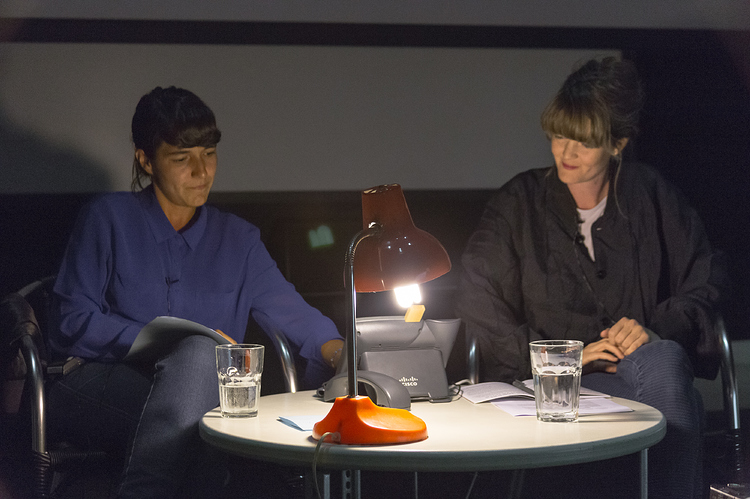TWWWO Voice Archive is a growing archive of recorded phone conversations between the curators of The World in Which We Occur series, Margarida Mendes and Jennifer Teets, and an array of contemporary artists, scientists, philosophers, and scholars across disciplines.
It was originally developed for the XII Baltic Triennial that took place in September of 2015 at the Contemporary Art Centre in Vilnius. The archive is now accessible online and the series will continue throughout 2016.
Embarking on modern day issues rooted in the history of materiality and flux, as well as pertinent politically enmeshed scientific affairs shaping our world today, the series’ premise is one of interrogation and epistemic search. Loosely inspired by, and set in the legacy of hybrids growing out of artist James Lee Byars’ 1969 project World Question Centre, The World in Which We Occur underlines the necessity for inquiry over an assertiveness of responses. ‘Could you offer us a question that you feel is pertinent in regards to your own evolution of knowledge?’ asks Byars at the end of the line. The World in Which We Occur unveils incentives or queries so as to generate further questions to build upon. It also aims to open up other areas of knowledge and speculation stemming from the core exercise of explicating one’s relationship within the current state of nature, in an era of erratic climatic behaviours.
Each conversation took place over the telephone, and was formulated around questions addressed by speakers across the world.
The speakers recorded in the four sessions are Carolina Caycedo, Cormac Cullinan, Ashlee Cunsolo Willox, Fran Gallardo, Lori Gruen, Clive Hamilton, Stefan Helmreich, Pedro Neves Marques, Barbara Orland, Joana Rafael, Jenna Sutela, and Paulo Tavares.
You can access the audio recordings here:
SESSION 1 - THE PHARMAKON
Speakers: Barbara Orland, Carolina Caycedo, Pedro Neves Marques
SESSION 2 - MOLECULAR COLONIALISM IN THE REIGN OF MICROORGANISMS
Speakers: Stefan Helmreich, Fran Gallardo, Jenna Sutela
SESSION 3 - GRIEF AND CLIMATE CHANGE
Speakers: Clive Hamilton, Ashlee Cunsolo Willox, Lori Gruen
SESSION 4 - STATES OF RESERVE – THE LEGALITY OF INVISIBLE REGIMES
Speakers: Cormac Cullinan, Joana Rafael, Paulo Tavares
For further information on the speakers and TWWWO at the XII Baltic Triennial click here:
